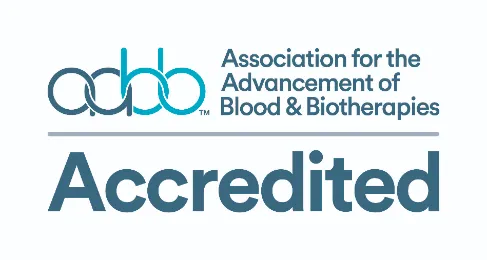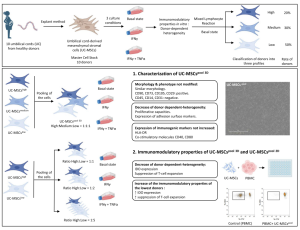A recent analysis presented at MSMilan 2023 showed significant cognitive and biomarker improvements among patients with progressive multiple sclerosis receiving repeated intrathecal injections of autologous mesenchymal stem cells.
NeurologyLive, October 12, 2023
A new interim analysis of an open label trial presented at the 2023 MSMilan, the 9th Joint ECTRIMS-ACTRIMS meeting, held October 11–13, in Milan, Italy, revealed significant beneficial effects on cognition and on objective biomarkers of neuroinflammation and neurodegeneration, among patients with progressive multiple sclerosis (MS) treated with repeated intrathecal (IT) injections of autologous mesenchymal stem cells (MSC).1
In 15 tested patients treated by at least 2 injections of MSC, 9 such patients improved between 5% and 18% in 25 feet walking.In addition, the average standard score of 4 cognitive tests taken by patients improved from 0.11 at baseline to 0.33 following 3 MSC injections over a year. Among 22 patients who received at least 1 MSC treatment, 13 of them showed improvement in the Symbol Digit Modalities Test (SDMT) scores, one of the cognitive tests. Notably, 6 of 17 treated patients improved by more than 4 degrees in SDMT in 3 consecutive tests over a year.
In this analysis, lead author, Petrou Panayiota, MD, senior neurologist, Unit of Neuroimmunology and Multiple Sclerosis Center and The Agnes-Ginges Center for Neurogenetics at Hadassah University Hospital in Jerusalem, Israel, and colleagues primarily evaluated the effect of repeated MSC transplantations on cognition in patients with progressive MS. Additionally, the researchers investigated objective serum biomarkers of neuroinflammation and neurodegeneration, specifically neurofilaments light chain (NfL) and glial fibrillary acidic protein (GFAP) with the therapy.
The open-label extension enrolled 48 patients with either secondary progressive MS or primary progressive MS who participated in the previous double-blind trial (NCT02166021) with MSC injections. The researchers used 4 cognitive tests including the SDMT, California Verbal Learning Test, Brief Visuospatial Memory Test, and Controlled Oral Word Association Test to assess patients at baseline before treatment, and at 4-5 time points following the first MSC-injection. At the same time, researchers also tested for serum NfL and GFAP levels using Quanterix technology (SIMOA).
Among available data, 17 patients were treated with at least 2 intrathecal injections of MSC between 3 and 6 months apart, and 12 patients received 3 MSC injections. For treated patients, NfL levels reduced from a mean of 15.7 pmol/ml at baseline to 12.8 pmol/ml during the post-treatment year while GFAP levels also reduced from 191.4 pmol/ml at baseline to 155.4 pmol/ml.
In the previous double-blind randomized study conducted by Petrou and colleagues, IT injection of autologous bone marrow derived MSC showed robust clinical and radiological effects in patients with active and progressive MS.2 Enrolled patients had evidence of either clinical worsening or activity during the previous year between 2015 and 2018 andwere randomized into 3 groups: IT or intravenous (IV) autologous MSCs (1 × 106/kg) or sham injections.
After 6 months, half of the patients from the MSC-IT and MSC-IV groups were retreated with MSCs, and the other half with sham injections. Patients initially assigned to sham treatment were divided into 2 subgroups and treated with either MSC-IT or MSC-IV. After 14 months of the study, instigators did not observe any serious treatment-related safety adverse events. Significantly fewer patients experienced treatment failure in the MSC-IT and MSC-IV groups compared with those in the sham-treated group (6.7%, 9.7%, and 41.9%, respectively, P = .0003 and P = .0008).
During the 1-year follow-up, 58.6% and 40.6% of patients treated with MSC-IT and MSC-IV, respectively, had no evidence of disease activity compared with 9.7% in the sham-treated group (P <.0001 and P <.0048, respectively). In addition, the MSC-IT transplantation induced additional benefits on the relapse rate, on the monthly changes of the T2 lesion load on MRI, and on the timed 25-foot walking test, 9-hole peg test, optical coherence tomography, functional MRI and cognitive tests. Overall, treatment with MSCs was well-tolerated and induced short-term beneficial effects, especially in the patients with active disease. Notably, the IT administration was more efficacious than the intravenous in several parameters of the disease.
References:
- Panayiota P, Kassis I, Yaghmour NE, et al. effects of repeated autologous mesenchymal stem cells transplantation on cognition and serum biomarkers in progressive multiple sclerosis: interim analysis of an open label extension trial. Presented at: 2023 MSMilan; October 11-12; Milan, Italy. Abstract P377.
- Petrou P, Kassis I, Levin N, et al. Beneficial effects of autologous mesenchymal stem cell transplantation in active progressive multiple sclerosis. Brain. 2020;143(12):3574-3588. doi:10.1093/brain/awaa333
Source: NeurologyLive








